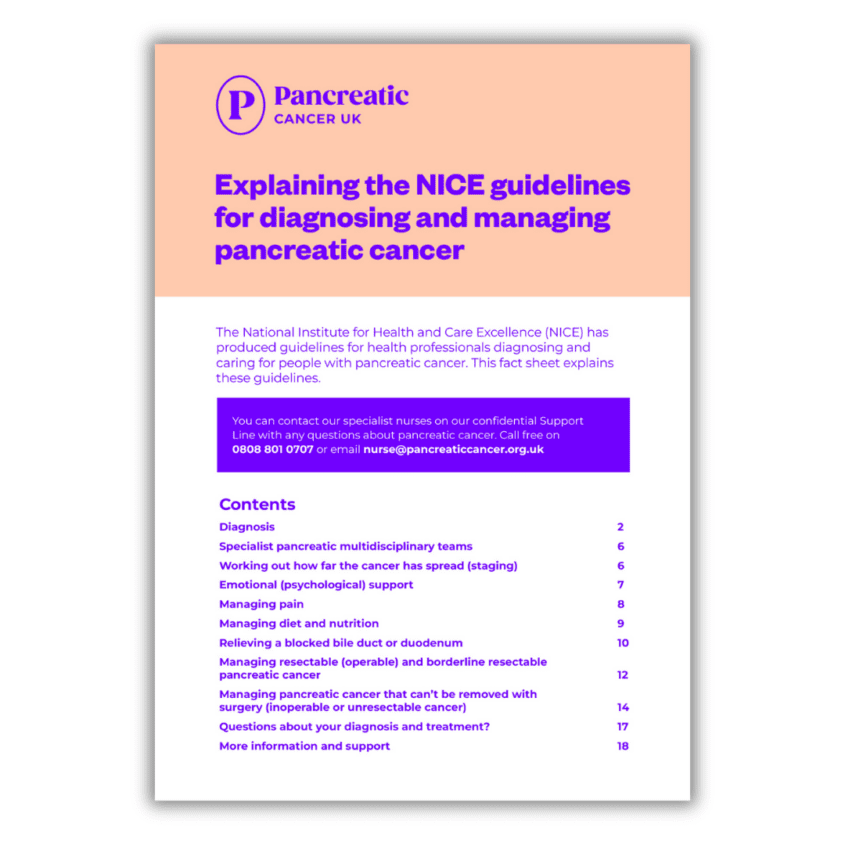Find out more about the care you should expect across the UK.
Read all the NICE guidelines for pancreatic cancer
- Explaining the NICE guidelines for diagnosing and managing pancreatic cancer
- NICE guideline 1: Diagnosing pancreatic cancer
- NICE guideline 2: Specialist pancreatic multidisciplinary teams
- NICE guideline 3: Working out how far pancreatic cancer has spread (staging)
- NICE guideline 4: Emotional (psychological) support
- NICE guideline 5: Managing pain
- NICE guideline 6: Managing diet and nutrition
- NICE guideline 7: Relieving a blocked bile duct or duodenum
- NICE guideline 8: Managing resectable (operable) and borderline resectable pancreatic cancer
- NICE guideline 9: Managing pancreatic cancer that can’t be removed with surgery (inoperable or unresectable cancer)
These guidelines are for the most common type of pancreatic cancer, pancreatic ductal adenocarcinoma. Health professionals don’t have to follow these guidelines, but they must take them into account when making decisions about care. They should also take your needs and wishes into account.
These guidelines cover England, Wales and Northern Ireland. Scotland does not follow the NICE guidelines.
How can the guidelines help me?
Your treatment and care will be individual to you, so not every recommendation will be relevant to you.
You can use these guidelines to help you understand the care you should have and make decisions about your treatment. You can also use them to speak to your doctors if you feel you are not getting the care you should have.
Throughout these guidelines we link to our other information, which explains some of the tests and treatments mentioned. We suggest you read these guidelines along with our other information to make sure you have all the information you need.
Questions about your diagnosis or treatment?
If you have any questions, speak to your doctor or nurse. You can also speak to our specialist nurses on our Support Line.
You can read the guidelines for health professionals on the NICE website.


Read our fact sheet about the NICE guidelines
To read our guide to the NICE guidelines in full, click through to the next pages or you can download or order a free copy of our fact sheet, Explaining the NICE guidelines for diagnosing and managing pancreatic cancer.


Published: April 2025
Review date: April 2028

